Available at all retailers this Elksmas season.
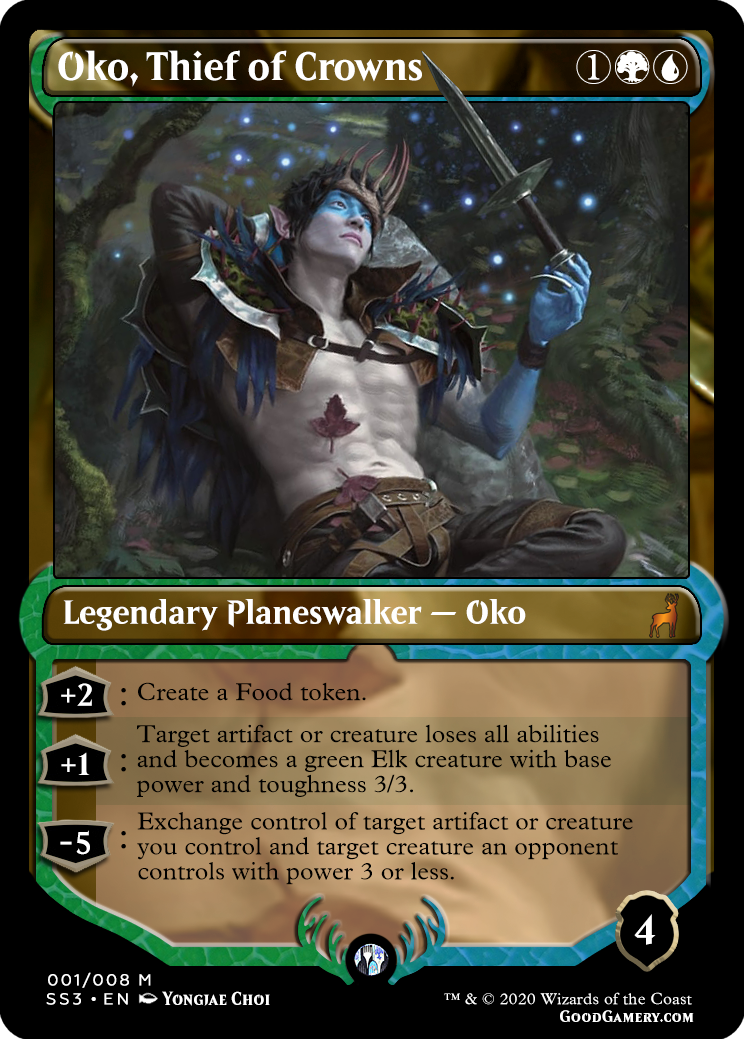
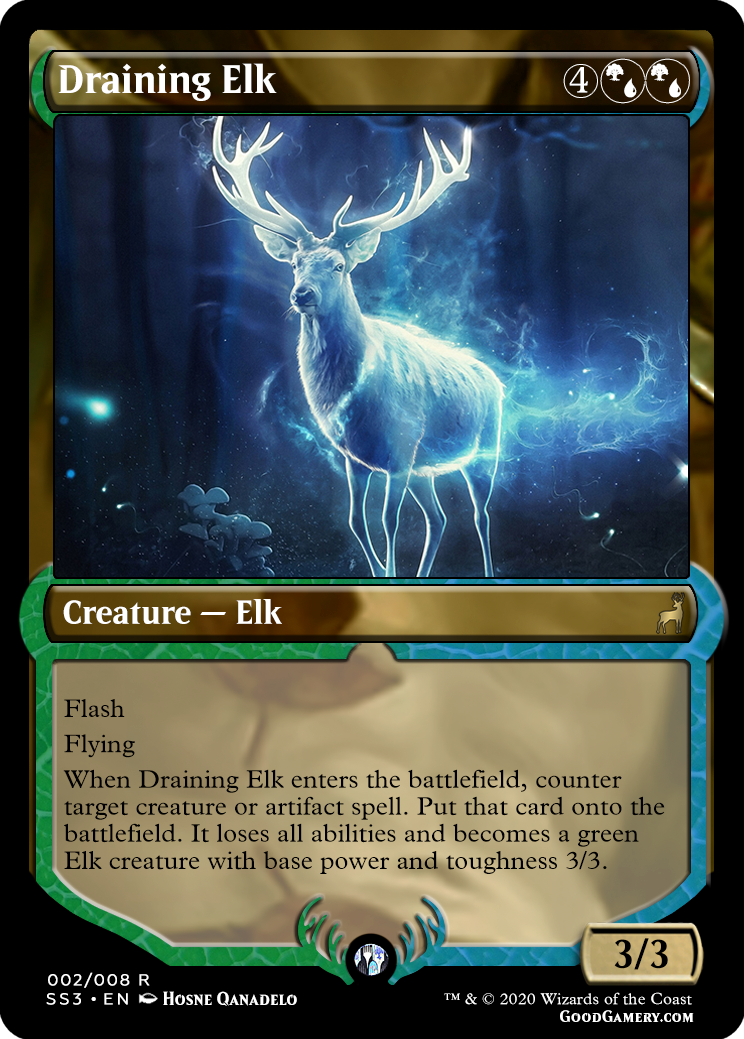
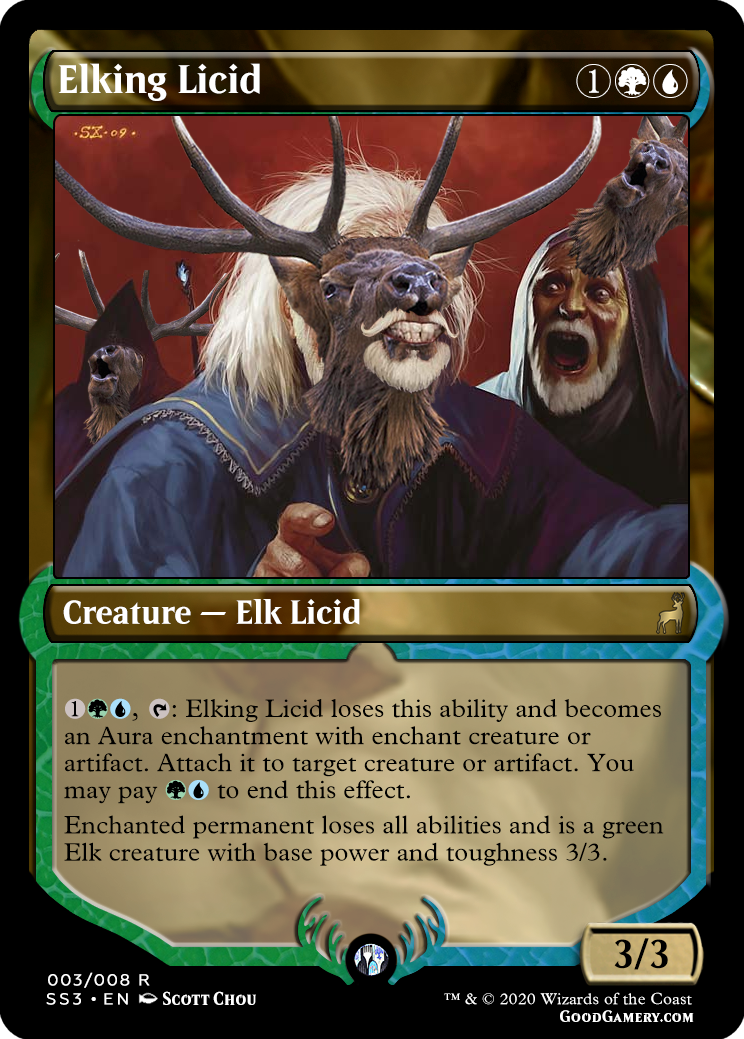
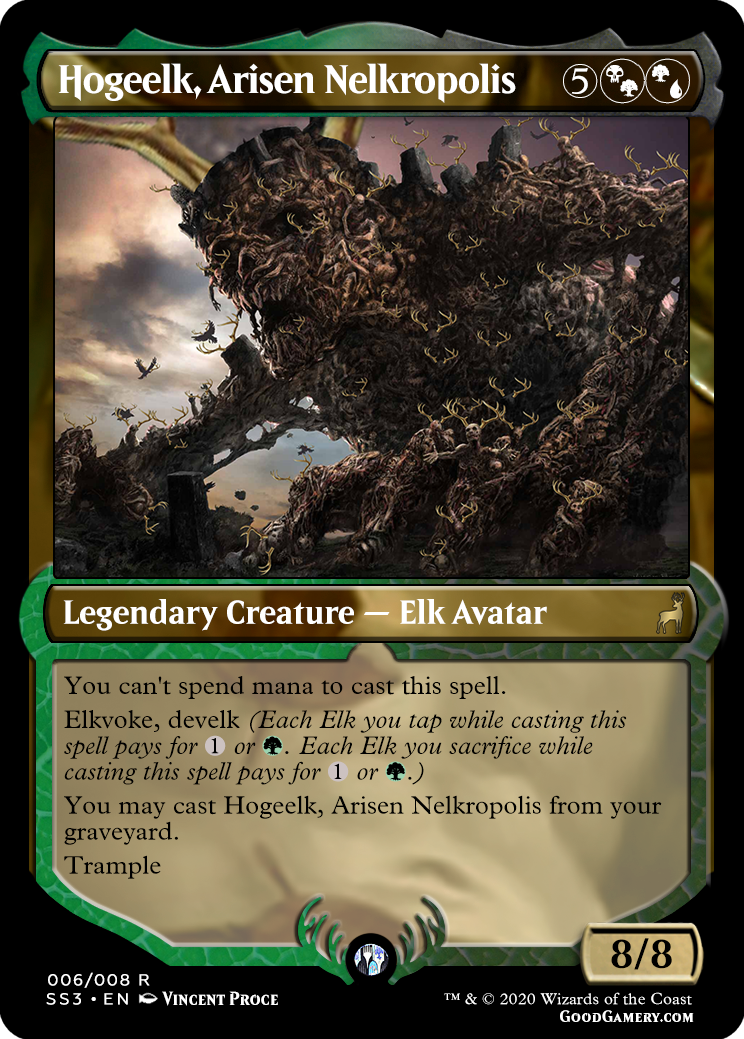
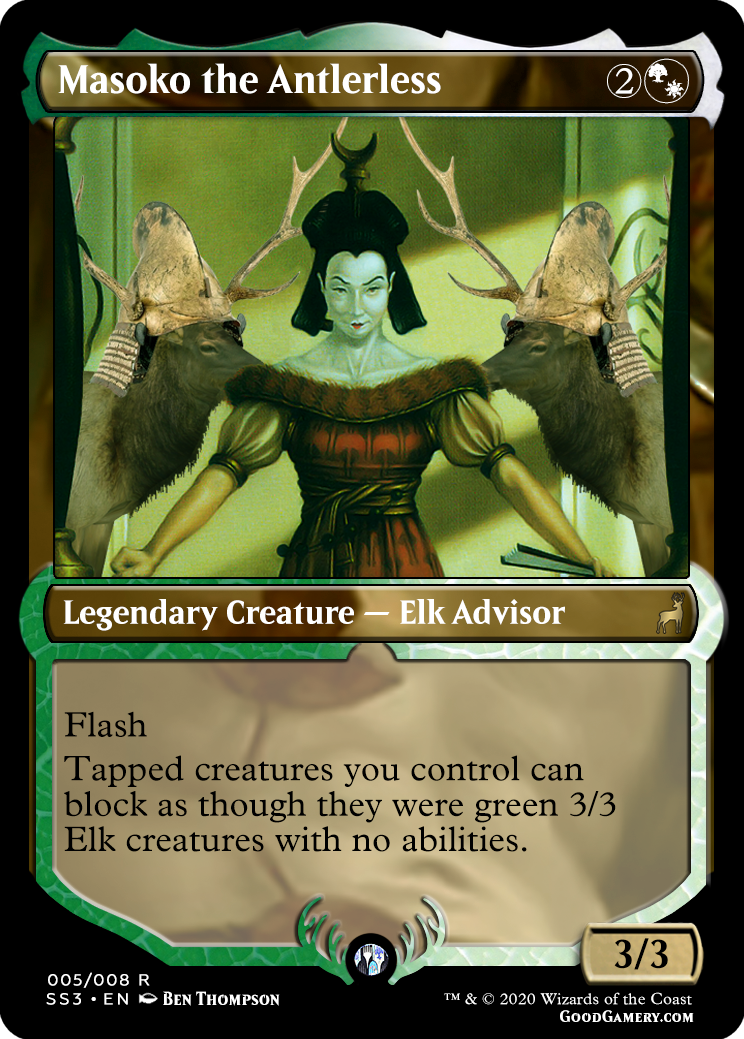
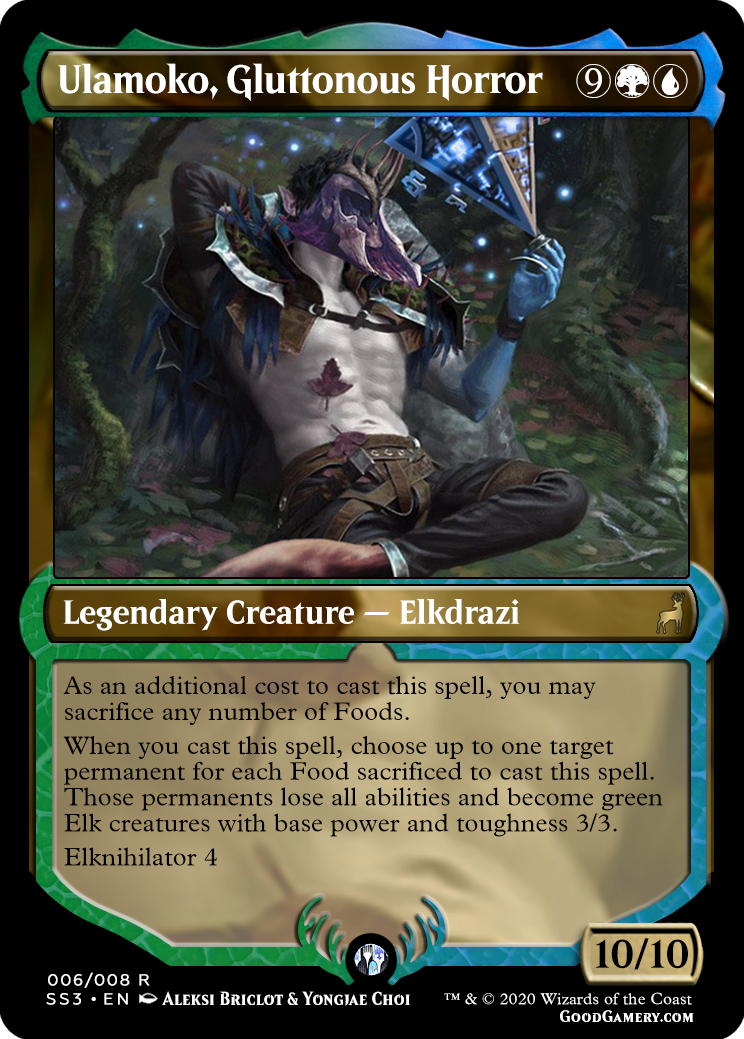
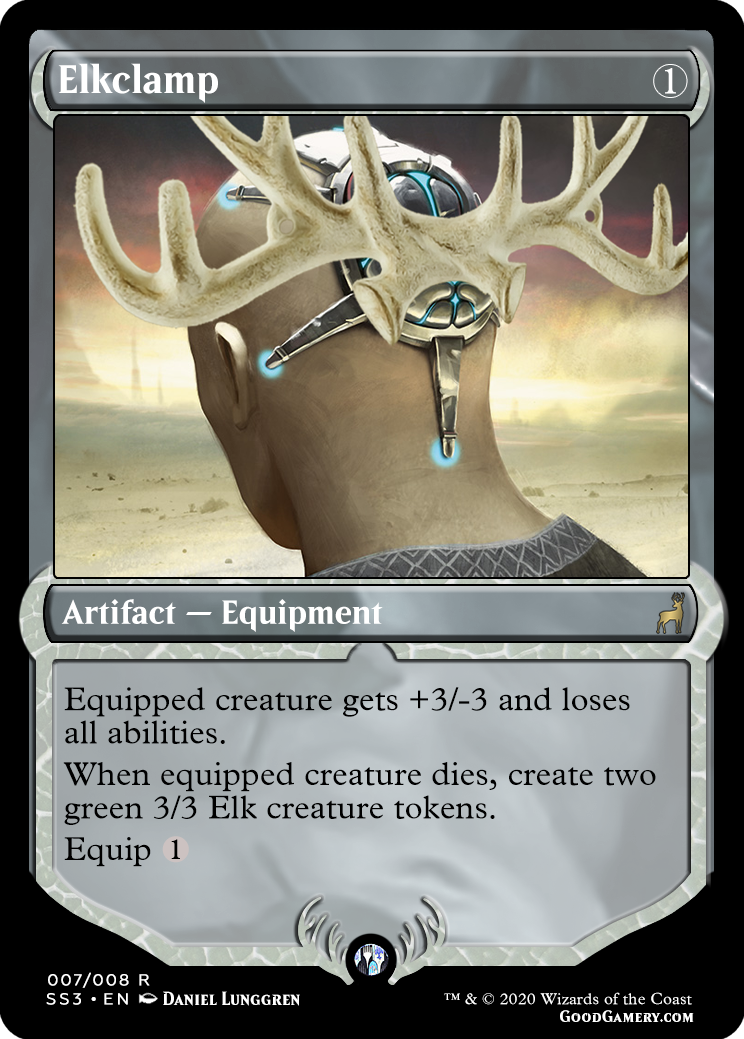
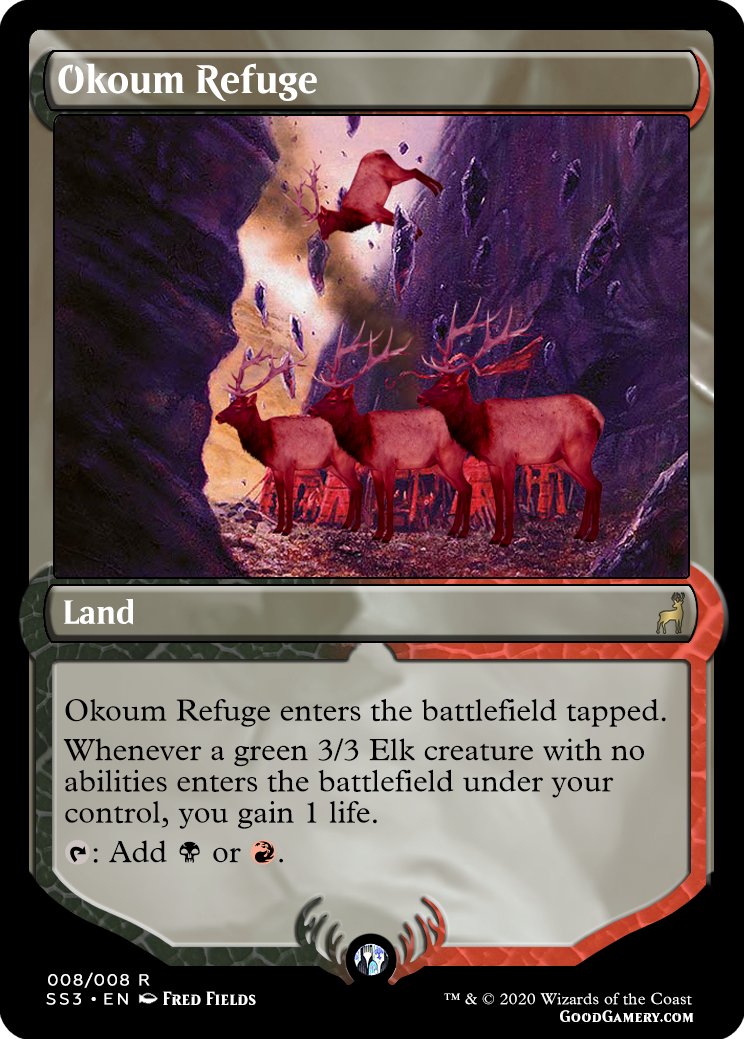
Available at all retailers this Elksmas season.









Hot on the heels of the newest Magic the Gathering: Arena beta release, Wizards of the Coast appears to be taking the world of Magic into completely new territories. According to a message received by the Good Gamery staff earlier today from an anonymous source, Wizards appears to be working on their own entry into the dating app marketplace. Along with the tip, we received what are purported to be screenshots from the new service, and it appears the site is well into development. What do you think? Are these fake, or real? They’re probably fake.
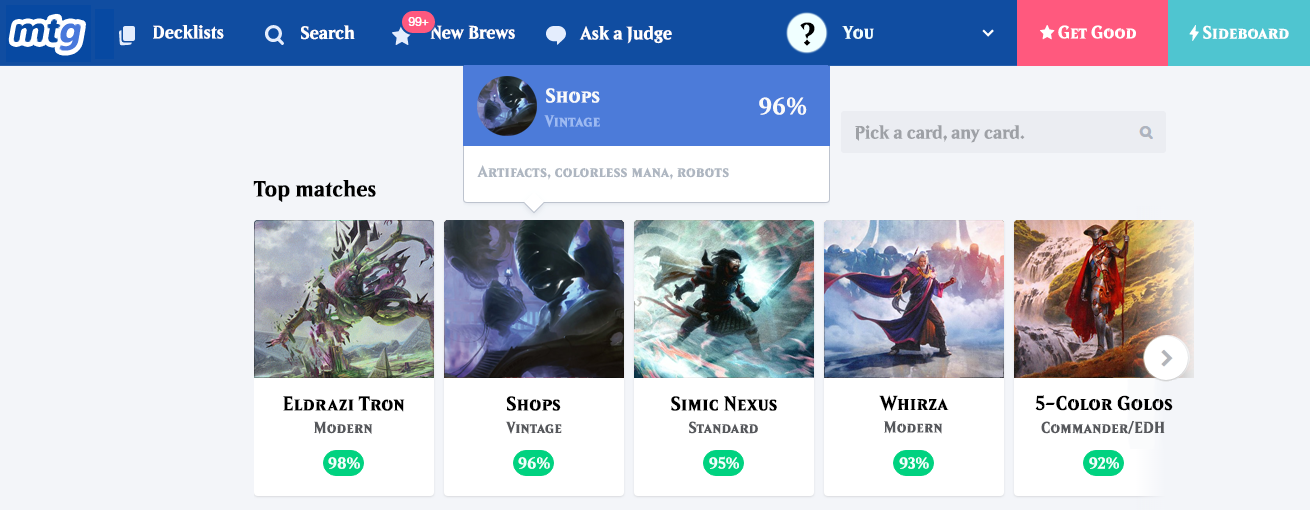
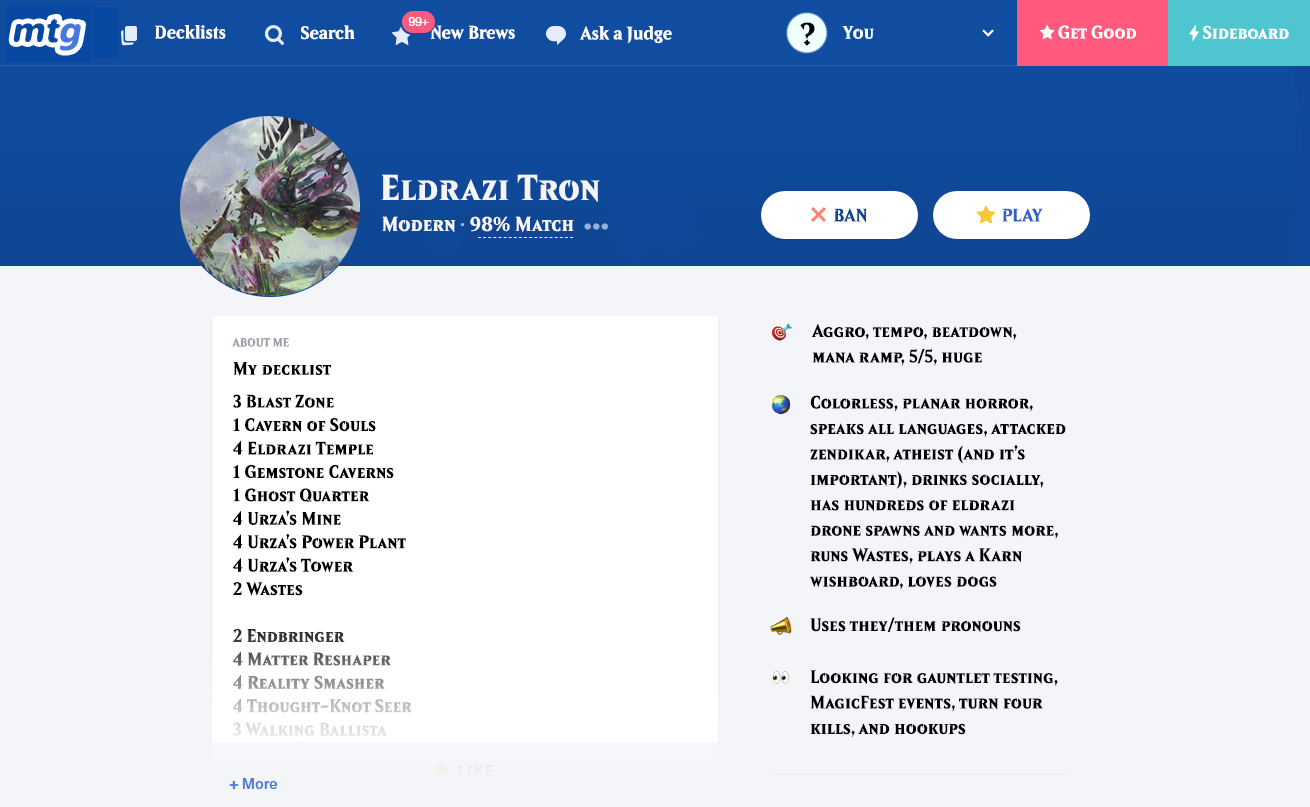
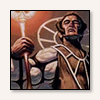
Welcome back to our regular series Judge’s Corner, where we answer your Magic: the Gathering rules questions.
Q: I play [card]Kasmina’s Transmutation[/card] on my opponent’s creature that has five +1/+1 counters on it. How big is it now?
A: [card]Kasmina’s Transmutation[/card] changes a creature’s power and toughness to base one instead of base ten. With five +1/+1 counters, it is now a 111111/111111.
Q: How does Aeon Engine work in a two-player game?
A: It works the same as it does in a multiplayer game. For instance, if it’s currently the fourth turn of the game when Aeon Engine is activated, then [card]Serra Avenger[/card] is unable to be played on subsequent turns, as they will now be the third, second, first turns of the game, and so on.
Q: I’m a new player and noticed [card]Price of Betrayal[/card] says it can remove counters from my opponent. Why would my opponent have counters?
A: Magic is a game that prides itself on supporting all sorts of players, including spineless cowards who can’t bear to see your spells resolve.
Q: Can you explain how prize splitting works?
A: When there are two players remaining in an event and a winner is not able to be determined, a wise judge can offer to split the prize, with each player receiving half. The player who objects to this prize split is the one who clearly actually cares about the prize, and thus they will be declared the winner.
Q: So I saw that article about how Magic is Turing-complete, and I know that any Turing-complete system can simulate any other. Is it legal for me to use my “computer” to simulate a separate game of Magic with ante cards and use those to take my opponent’s cards for keeps?
A: Card-based computer simulations have not been acceptable in tournament play since Leaping Lizards was removed from development of Magic: The Gathering Online.
We’ve heard your concerns about transparency around the requirements for membership in the Magic Pro League. We’ve reevaluated our selection process and are determined to strike the right balance of personalities. Here are our selections for the MPL class of 2020. We will not be responding to any questions.
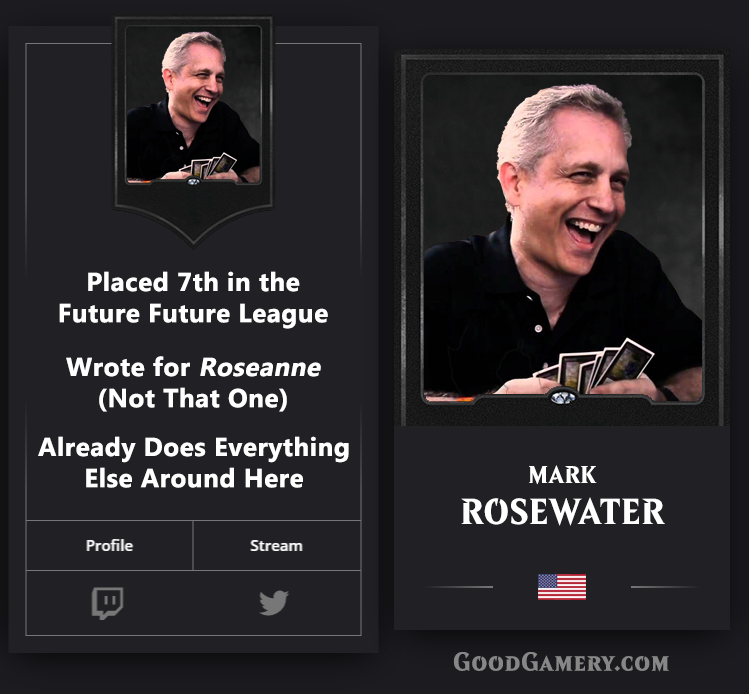
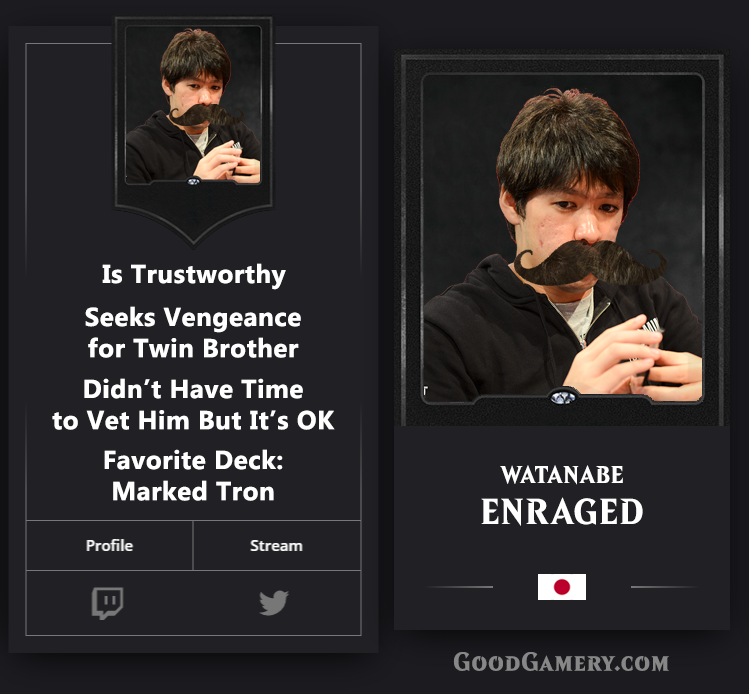
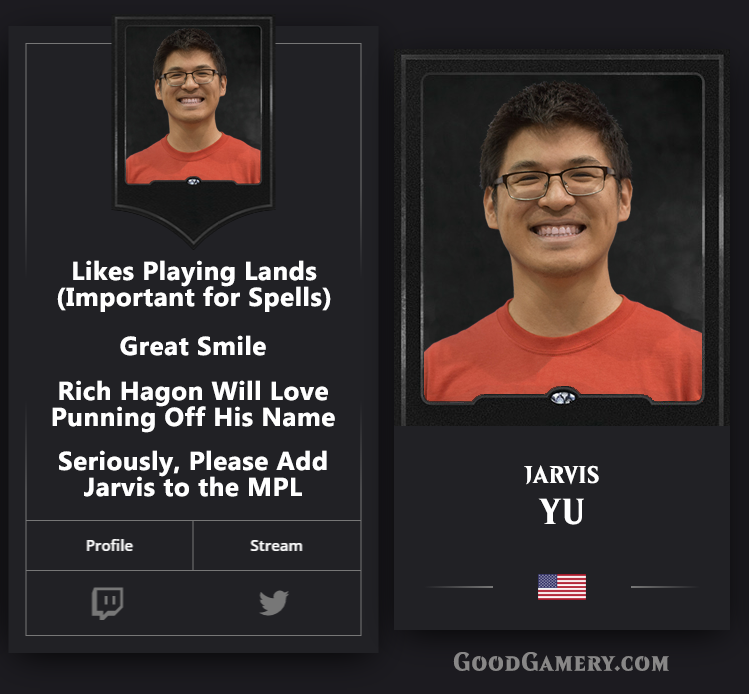
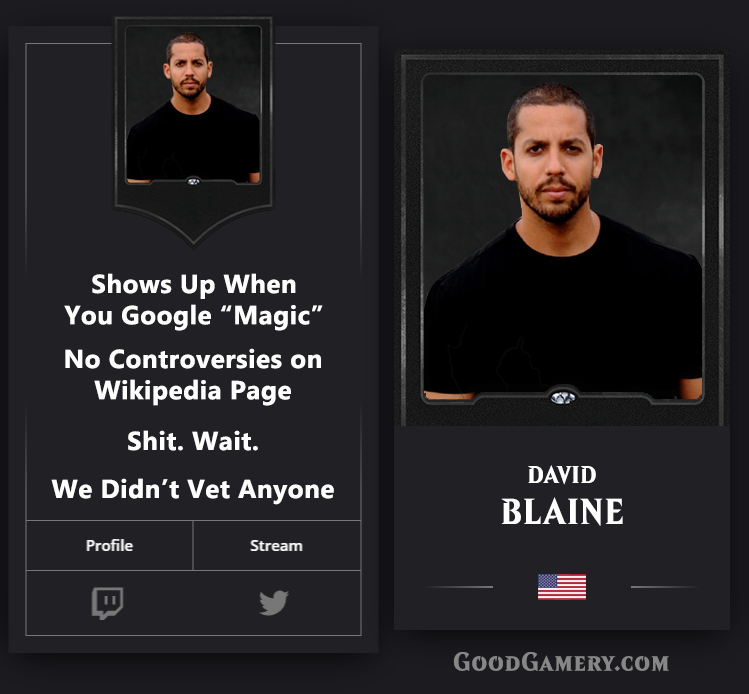
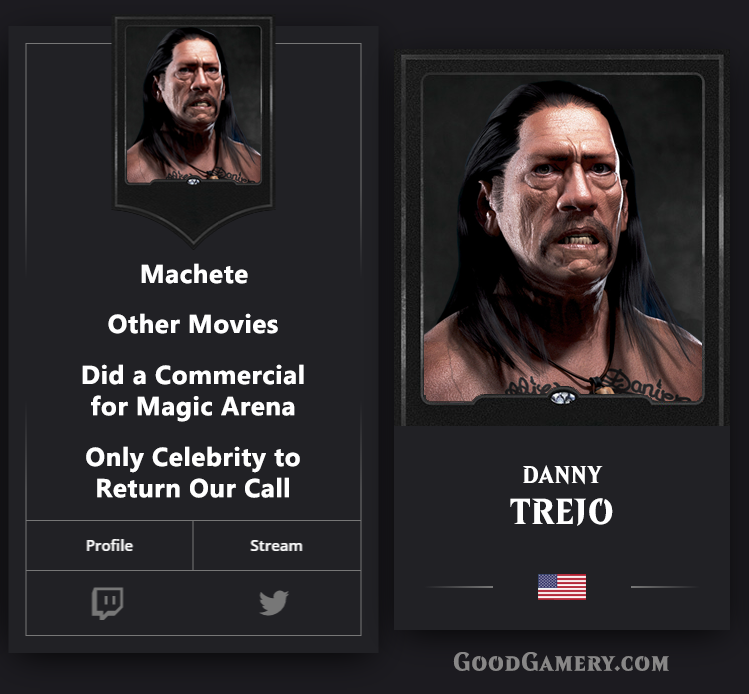
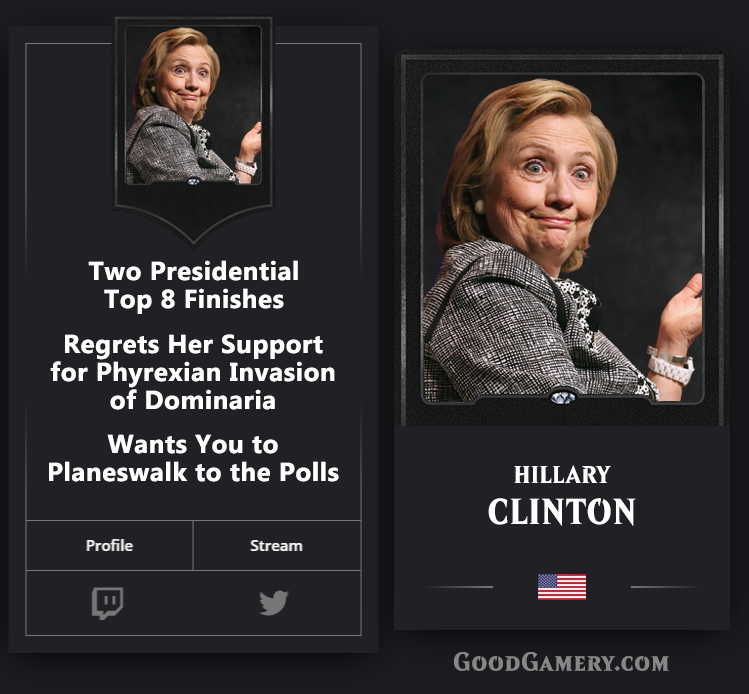
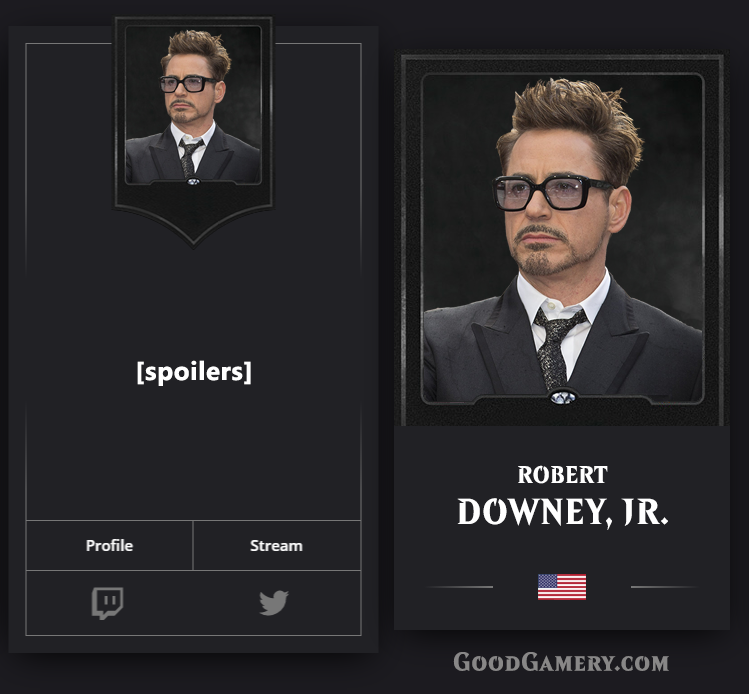
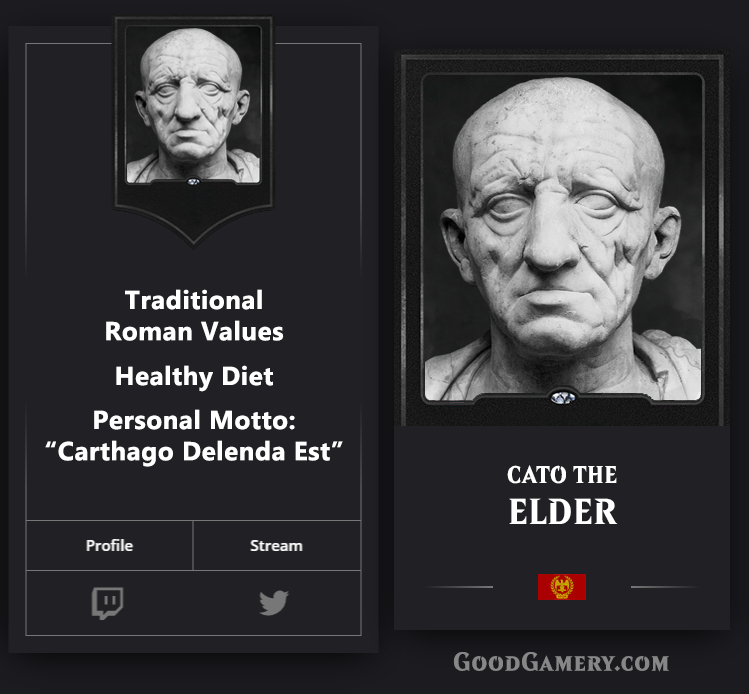
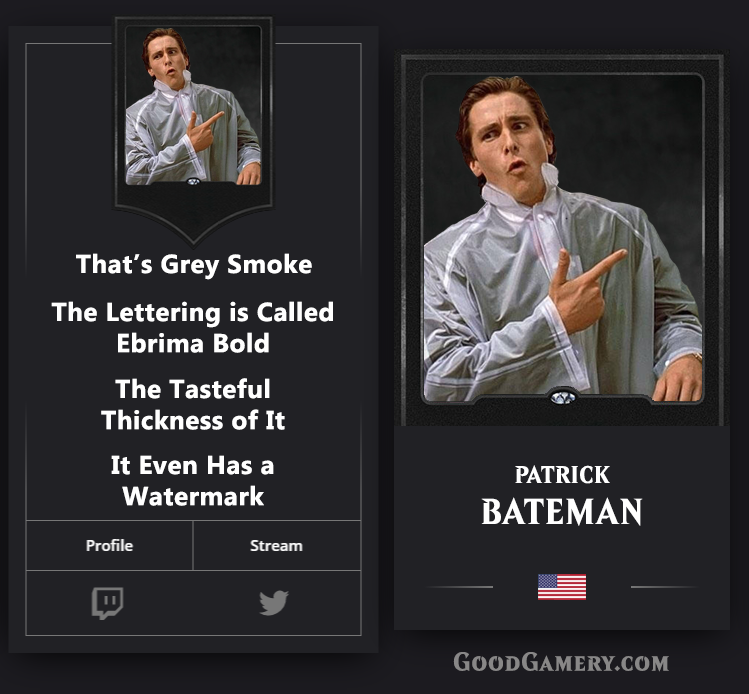
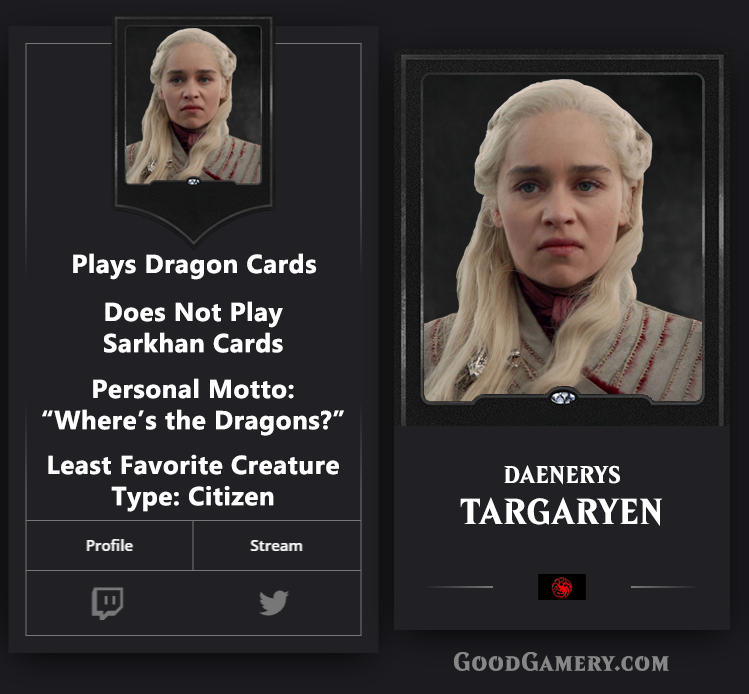
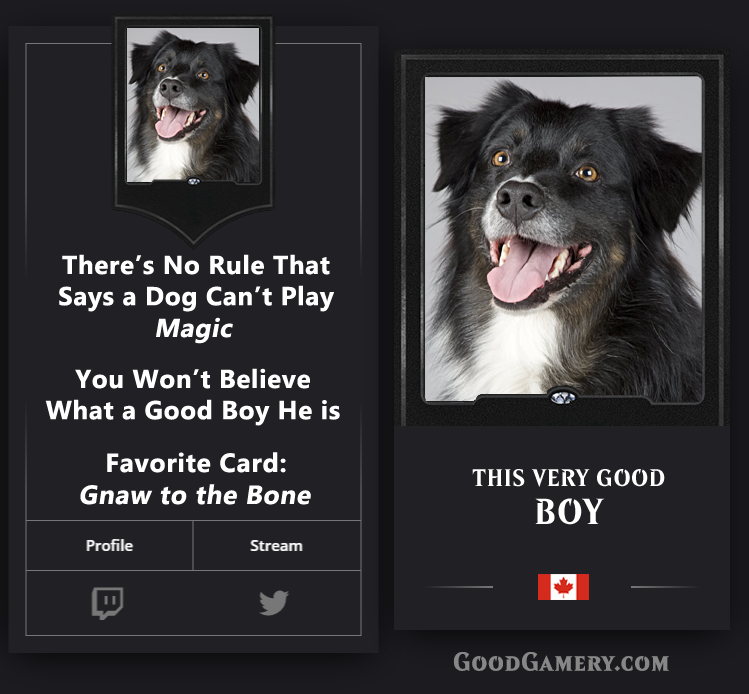
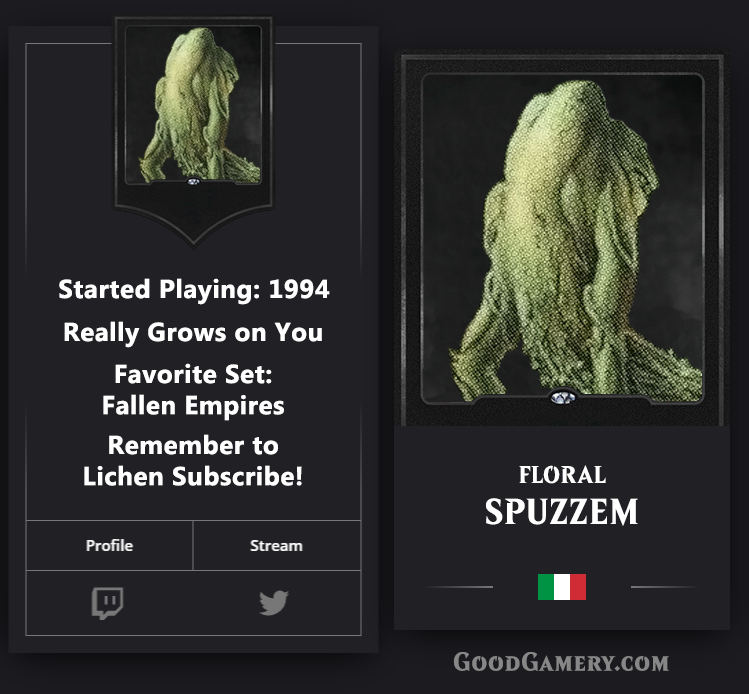
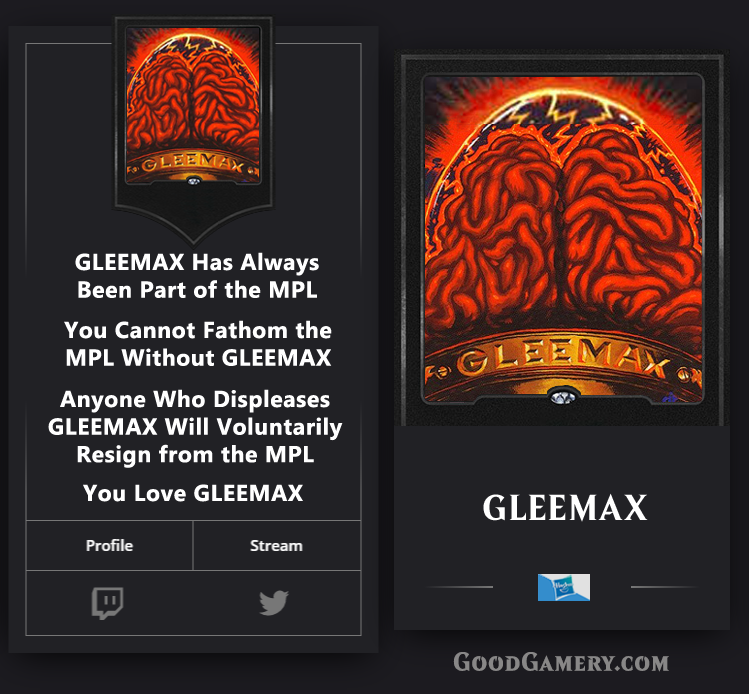
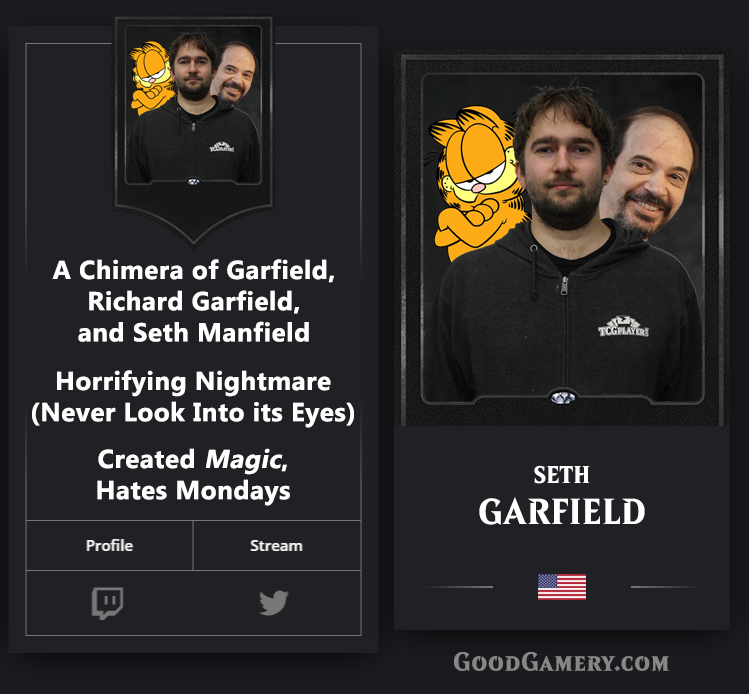
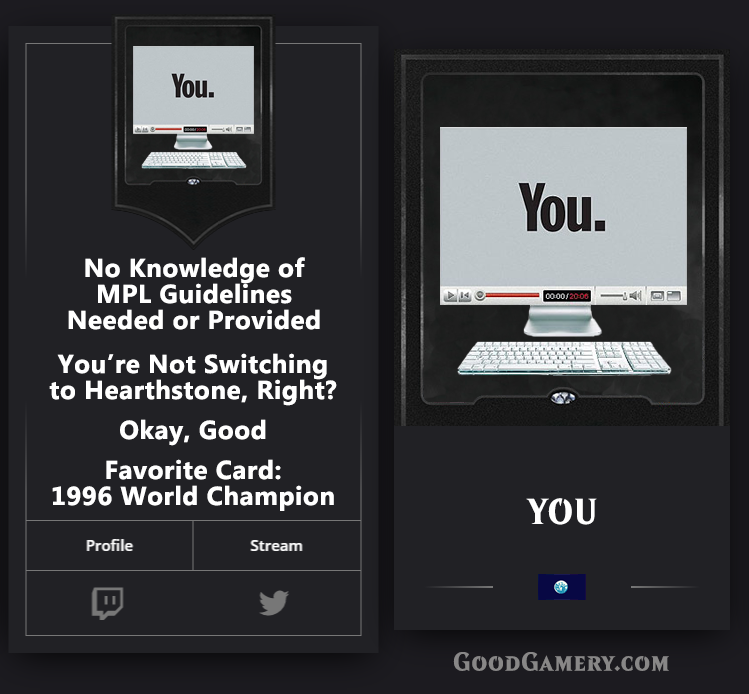
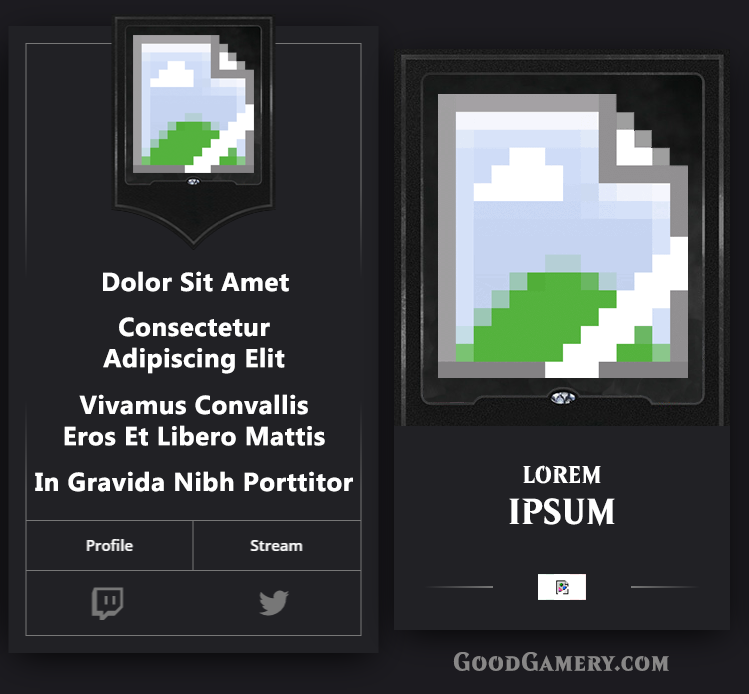
These are real.


by A Cynical Marketing Director
Because the Challenger Deck series has been an absolute hit with our competitive player base, we’ve decided to punch things up for a second round of decks for the 2019 competitive season. We wanted to address multiple formats while continuing to find new ways to make Standard more exciting (creating new, functioning online play software from the ground up has been an unqualified success in getting players to actually play Standard games) and what better way than to address the needs of our most-neglected formats?
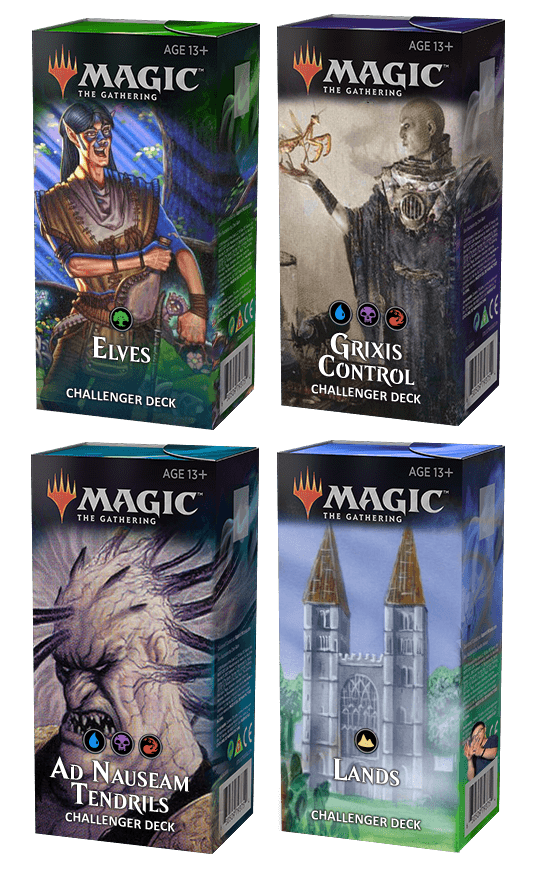
These are the first in a new series of Challenger Decks intended to address formats other than Standard. We’re well aware that older formats can be more difficult for new players to break into without having a substantial card base already. By providing these decks with no MSRP, we are allowing retailers to help their local players find the products that best suit their needs, without concern for budget or aftermarket value.
However, when designing these decks, we ran into an obvious problem with no obvious solution: reprinting cards that appear on the Reserved List. With absolutely no way for us to get around this self-imposed restriction, we got a bit creative and made a series of checklist cards that will take the place of these cards in the deck. While this does mean that you will have to acquire copies of these cards on your own. We leave this as a challenge for the players, as we cannot formally acknowledge any third-party vendors. Please contact your local Wizards Play Network store for information on how to obtain singles.
These decks are meant to be competitive once fully built, so get ready to load up TCG Player in a separate tab while you take a look at these deck lists!
Ad Nauseam Tendrils combines the blistering speed of zero-mana spells with zero-mana mana artifacts to generate a huge spell count in a short amount of time. Lion’s Eye Diamond is famous for being confusing to play with, degenerate when built around properly, and the only non-land card on the Reserved List in this deck.
[deck title=Ad Nauseam Tendrils]
[Lands]
1 Bayou
1 Bloodstained Mire
2 Island
3 Misty Rainforest
4 Polluted Delta
1 Swamp
2 Underground Sea
1 Volcanic Island
[/Lands]
[Spells]
1 Ad Nauseam
4 Brainstorm
4 Cabal Ritual
1 Dark Petition
4 Dark Ritual
4 Duress
4 Infernal Tutor
2 Past in Flames
4 Ponder
4 Preordain
1 Tendrils of Agony
4 Thoughtseize
[/Spells]
[Artifacts]
4 Lion’s Eye Diamond
4 Lotus Petal
[/Artifacts]
[/deck]
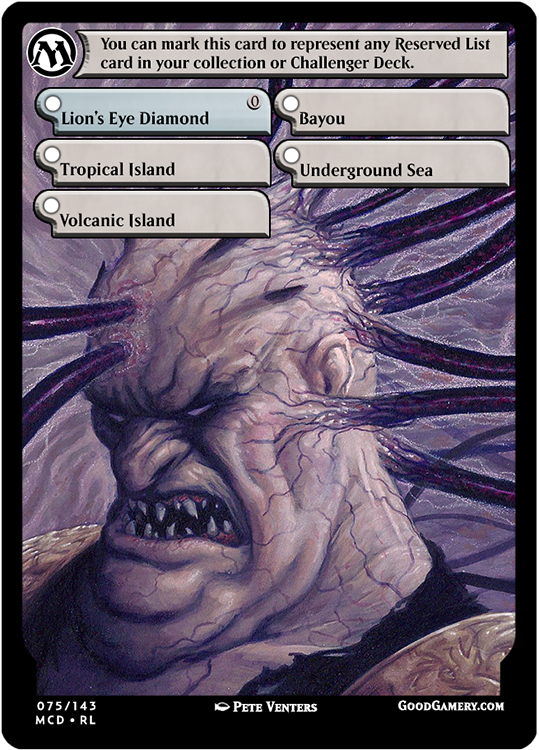
Delver of Secrets has a reputation for being played in almost every format it’s still legal in (and some that it’s not.) Recently it’s been tearing up the tables in Pauper format, which is the only format you’ll be able to afford to play after you complete your play-sets of dual lands.
[deck title=Grixis Control]
[Lands]
3 Flooded Strand
1 Island
2 Misty Rainforest
3 Polluted Delta
3 Underground Sea
3 Volcanic Island
4 Wasteland
[/Lands]
[Creatures]
4 Delver of Secrets
2 Gurmag Angler
2 True-Name Nemesis
3 Young Pyromancer
[/Creatures]
[Spells]
1 Bitterblossom
4 Brainstorm
4 Daze
1 Diabolic Edict
4 Force of Will
1 Forked Bolt
2 Inquisition of Kozilek
4 Lightning Bolt
4 Ponder
2 Preordain
2 Spell Pierce
2 Thoughtseize
[/Spells]
[/deck]
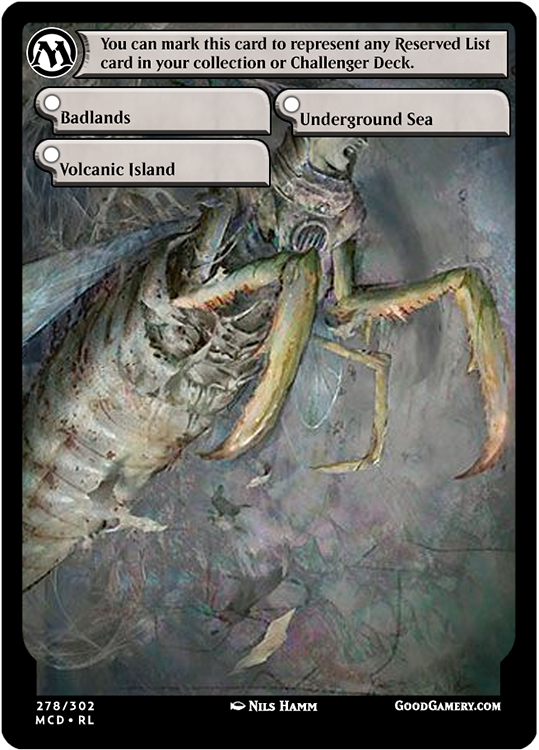
Made famous by Jarvis Yu, the world’s most handsome Magic professional, this deck uses a $3,000 card to kill creatures, then wins with a 20/20 flying indestructible creature token. Demoralize your opponents on the battlefield and at the ATM.
[deck title=Lands]
[Lands]
1 Ancient Tomb
1 Barbarian Ring
1 Bojuka Bog
3 Dark Depths
2 Forest
1 Ghost Quarter
1 Glacial Chasm
4 Grove of the Burnwillows
1 Karakas
2 Maze of Ith
1 Petrified Field
1 Riftstone Portal
3 Rishadan Port
1 Sheltered Thicket
2 Taiga
1 The Tabernacle at Pendrell Vale
4 Thespian’s Stage
1 Verdant Catacombs
4 Wasteland
1 Wooded Foothills
[/Lands]
[Not Lands]
2 Reclamation Sage
[/Not Lands]
[Also Not Lands]
4 Crop Rotation
3 Gamble
3 Life from the Loam
3 Punishing Fire
3 Exploration
1 Manabond
1 Molten Vortex
4 Mox Diamond
1 Sylvan Library
[/Also Not Lands]
[/deck]
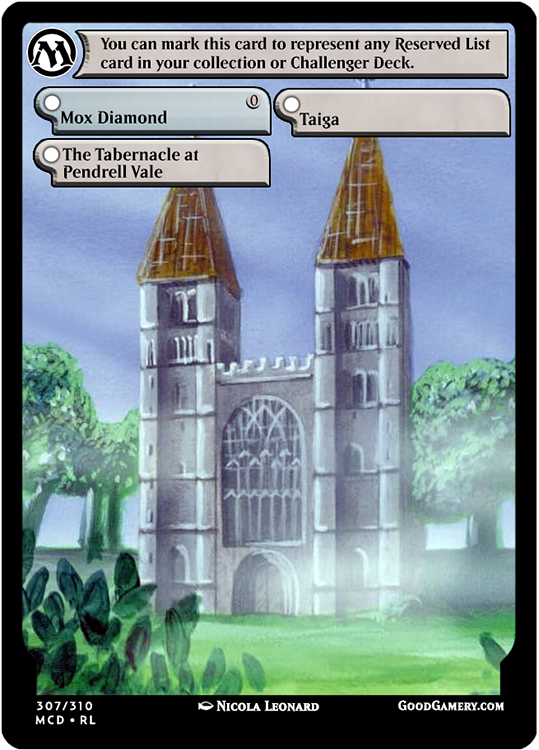
We know you bought this to play at the kitchen table, which is fine by us. We aren’t judging you. We will judge you if you try to purchase a playset of Gaea’s Cradles, however.
[deck title=Elves]
[Lands]
2 Dryad Arbor
5 Forest
4 Gaea’s Cradle
1 Misty Rainforest
1 Pendelhaven
1 Taiga
4 Windswept Heath
2 Wooded Foothills
[/Lands]
[Creatures]
2 Birchlore Rangers
2 Craterhoof Behemoth
1 Elvish Mystic
4 Elvish Visionary
1 Fyndhorn Elves
4 Heritage Druid
1 Llanowar Elves
4 Nettle Sentinel
4 Quirion Ranger
1 Reclamation Sage
1 Scavenging Ooze
4 Wirewood Symbiote
[/Creatures]
[Spells]
4 Glimpse of Nature
4 Green Sun’s Zenith
3 Natural Order
[/Spells]
[/deck]
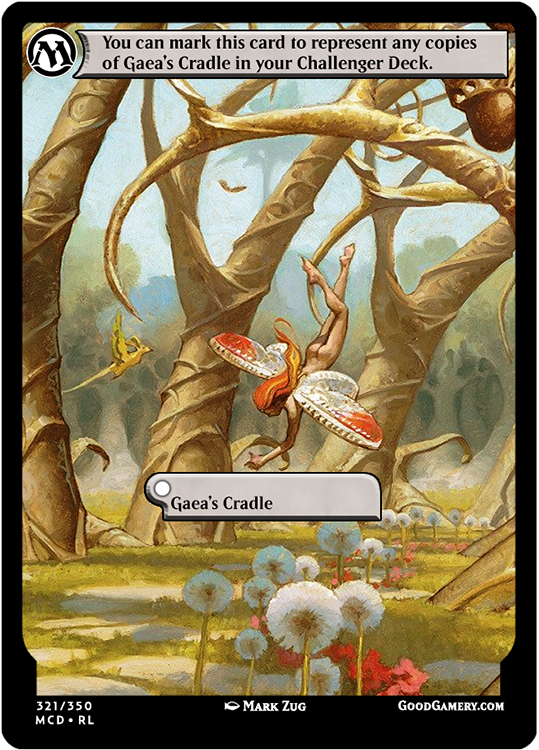
Because we expect you to collect four copies of everything, each deck includes 27 checklist cards, one for every card on the Reserved List. Customize your Challenger deck to your heart’s desire, or collect all 2,268 and complete your set! If you have enough checklist cards, you have a Legacy deck.
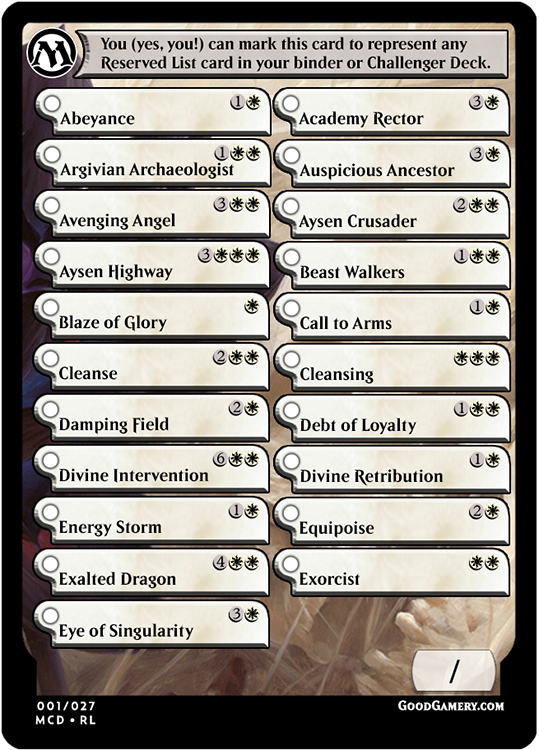
A bunch of cards from “War of the Stage” fell off of a FLGS and we rescued them, discovering in the process that Light Up the Stage is merely one card in a cycle of five. Here are all of them in WUBRG order, just as the Lord intended.
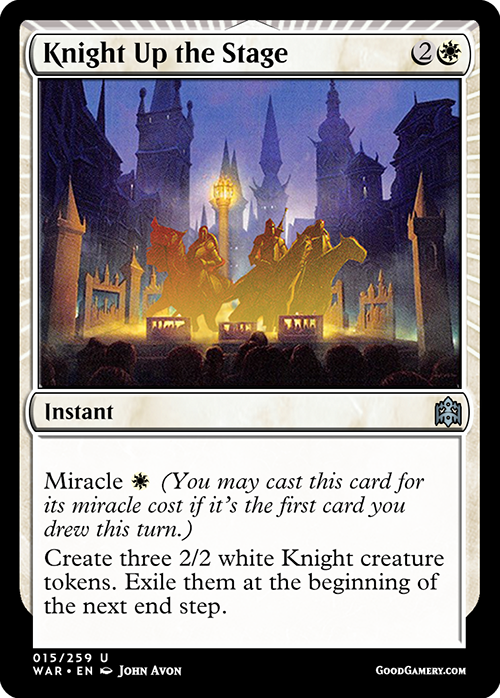
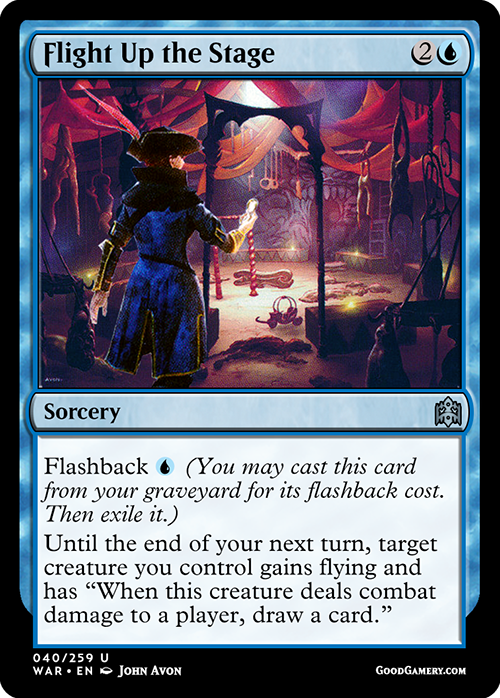
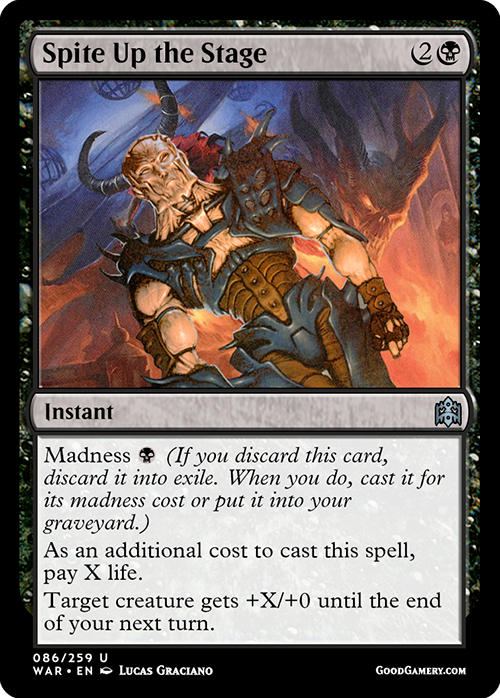
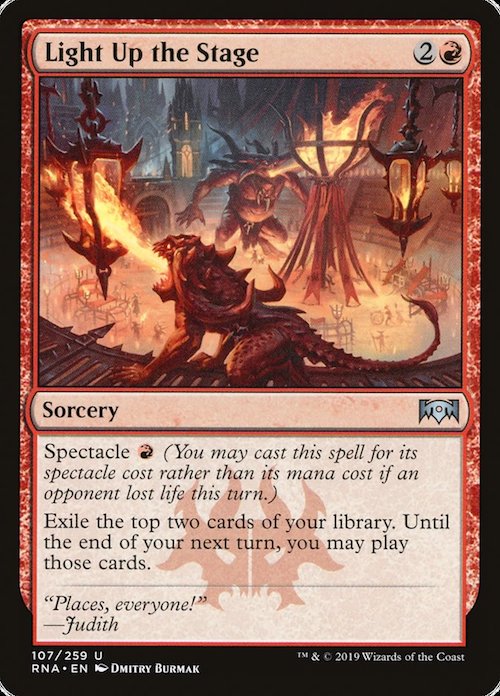
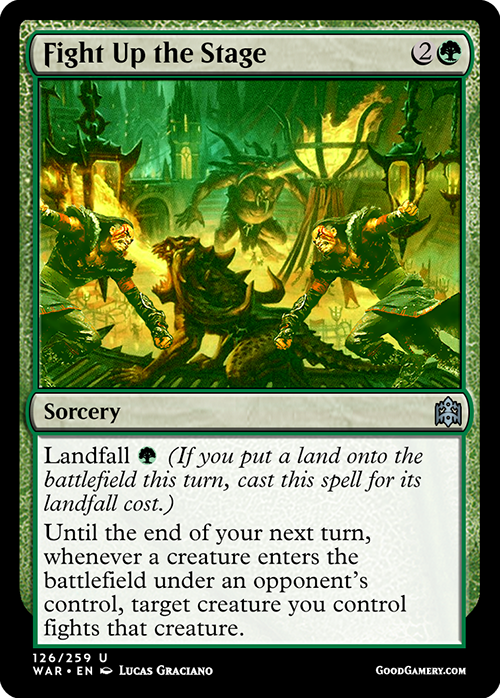
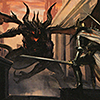
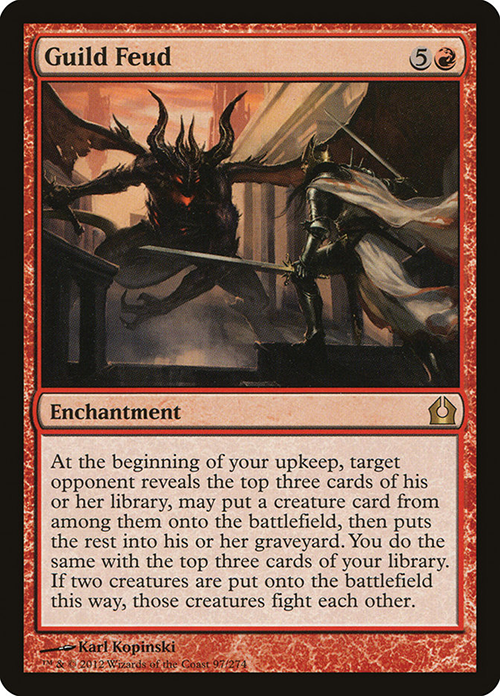
Even hardcore fans of Guild Feud know that jumping into the Feud can be intimidating for newcomers. With its richly rendered world and deep mythos, Guild Feud continues to attract new readers years after its initial release; but its style, which has been called “overwrought,” “needlessly convoluted,” and “like a bad Great Designer Search card,” means that many of these readers give up halfway through.
Here’s how to power through the Feud like a pro—it’s the order I wish I read the lines of Guild Feud‘s rules text in.
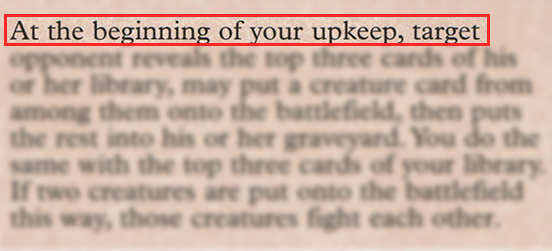
1. “At the beginning of your upkeep, target”
There’s no getting around it: Guild Feud is an enchantment with an upkeep trigger. While it flouts a lot of the clichés of an upkeep trigger enchantment, it’s still important that you start at the beginning so that you’re introduced to this context and can fully appreciate the Feud’s sly innovations.
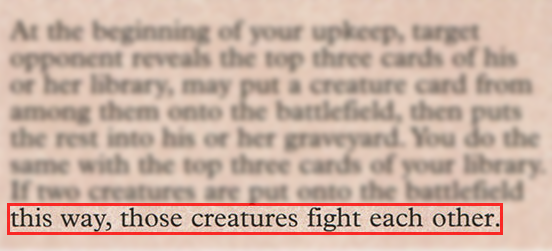
8. “this way, those creature fight each other.”
Woah, skipping to the end right away? The truth is, Guild Feud saves some of its absolute best action for the very end, and that means that many who attempt to read it in the traditional order never end up experiencing this awesome line. Spoil yourself! Plus, after reading this line you’ll no doubt be wondering, “How the hell did we end up here?”
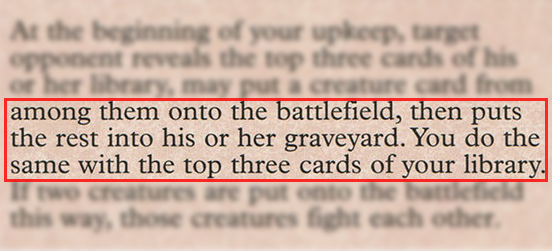
4. “among them onto the battlefield, then puts”
5. “the rest into his or her graveyard. You do the”
6. “same with the top three cards of your library.”
Lines four through six form the narrative core of Guild Feud: they are what most people think of when they think of “Guild Feud.” It makes sense to read these three lines (which many consider as constituting a “mini trilogy” in their own right) in consecutive order.
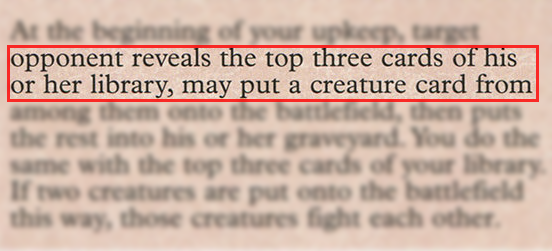
2. “opponent reveals the top three cards of his”
3. “or her library, may put a creature card from”
Lines two and three provide interesting backstory for the main narrative which unfolds in lines four through six, but they can be slow going unless you’re already committed to the Feud.
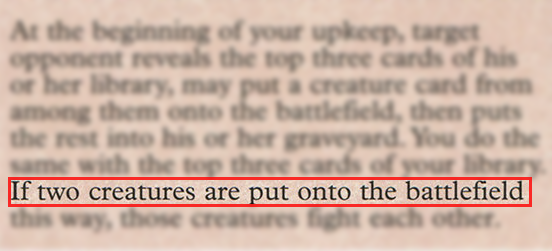
7. “If two creatures are put onto the battlefield”
As mentioned, the final act of Guild Feud features some of its most heart-pounding action. Unfortunately, the buildup to this final action is by any account uninspired. Save the seventh line for last: it’s only requisite reading for completionists.
Over the last few weeks, not much information has been released about the Great Designer Search 3 contest, a competition hosted by Wizards of the Coast to find a new intern designer for Magic: The Gathering. In an announcement yesterday, Wizards of the Coast revealed that the search was over and a new designer was selected.
In a surprising revelation, the winner was not one of the finalists. Instead, while the Great Designer Search finalists were visiting the Renton offices, a masked individual joined the contestants and submitted an entry as well. This individual did not enter with his real name, instead describing himself as the collective will of the Magic public.
We reached out to Wizards of the Coast and were able to arrange an interview with the head judge of the Great Designer Search, Mark Rosewater, as well as the winner of the contest, who only gave the pseudonym Multani.

“Multani,” Great Designer Search 3 Winner.
Hello, thank you for being taking the time out of what must be busy days to have this interview.
Mark: Hi.
Multani: Hi.
How were you able to compete in the contest, given that the eight finalists were already chosen?
Multani: It was surprisingly simple. I already lived near Renton, so when I found out the finalists were coming to visit I went down to Wizards of the Coast’s offices. I brought a few of my old designs that never saw print with me, and while I wasn’t able to meet with Mark Rosewater, I was able to show the rest of the judges and they seemed interested.
Mark: I heard about a ruggedly-handsome designer of mystery showing up when I was on break, and wasted no time in evaluating his card submissions. Without a doubt, I knew that they were what Magic needed and told the other judges that he would be entered into the finals. The designs resembled previous playtest cards that weren’t able to see the light of day, which told us that this designer had a lot of potential ahead. He also offered to make all the art for his cards, which was a plus.
What did you do for the previous stages of the GDS? Were you required to go through those stages?
Multani: When I arrived at Wizards of the Coast I was told that I wasn’t going to be able to join the contest, but Mark was able to convince the other judges that I should be given a chance to earn a spot. I was scheduled to take the multiple choice test after lunch with the other contestants, so I shared some stories with them and they talked about some of their ideas that could probably fit in Milk.
Mark: The multiple choice test that most people took was not the first one I wrote. I had previously written an entire separate test, but the other judges said it was too difficult, so I had to redo the test from the beginning. Since there was already another test ready to go, Multani took that one instead.
What was the hardest question in this version of the multiple choice test?
Multani: Not many people know this, but to become a writer for Roseanne there is also a multiple choice test. I did well on that when I had the opportunity to take it in the past, so I figured I would be able to do well on this test also. Turns out I was right, none of the questions seemed hard, though I could imagine some others getting tripped up on the question about what Mark Rosewater had in his pocket, but I just guessed based on what mine had.
Mark: I don’t think any of these questions ended up that difficult, and Multani was able to achieve a perfect score.
And the essay portion?
Multani: Why would I need to waste my time with the essays? Besides, I’ve written for years on Magic design, so it would be pointless to copy those answers over.
Multani: It’s not like any of us bothered reading the other essays anyways.
Do you have any concerns that letting someone who was never part of the contest win could damage faith in the way that the Great Designer Search was run?
Mark: I just pulled into the office, so I think I’ll need to end this interview.
Multani: Join me next week for stories about my first day.
Until then, may you always find what you search for.
Flores presents his student with a d20. “I want you to use this in your next game of Magic,” Flores says.
The student asks, “What is it for?”
Flores replies, “This is a misplay die. Every time you make a misplay, you must increase the number on the die.”
The student asks, “Why does the misplay die start at 1?”
Flores replies, “Because using this die is your first misplay.”

A monk asks Mike Flores, “Does Jund have a beatdown nature?”
Flores replies, “No.”
The monk says, “Many decks with Goblin Guide, Lightning Bolt, and Thoughtseize are beatdown. Why not Jund?”
Flores replies, “Jund does not run One with Nothing.”

Flores, a deck master during the Dojo era (1995-2001), received a university professor who came to inquire about Card Advantage.
Flores was drawing cards. He drew cards until his hand was full, and then kept on drawing.
The professor watched the overflow until he no longer could restrain himself. “It is overfull. No more will go in!”
“Like this hand,” Flores said, “you are full of your own opinions and speculations. How can I show you Card Advantage unless you first empty your hand?”

A student asks Flores, “How can I learn to cast spells as well as you?”
Flores responds, “Let us play a game of Magic, so that you may begin to learn.”
The student selects a simple burn deck to play against his master. Every turn the student cast a direct damage spell against Flores. Meanwhile, every turn Flores draws a card, thinks for several moments, and then plays an Island and passes the turn.
As the game goes on, the student becomes increasingly convinced that Flores will end the game with some miraculous flurry of spells. But on the last turn of the game, the student casts a Lightning Bolt for Flores’s final three points of life and, after thinking for a moment, Flores says that he has no response.
The student is incensed. “What am I supposed to learn from a game where you did nothing but play Islands every turn,” he exclaims.
Flores responds calmly, “Before you can learn to cast spells, you must learn to play lands.”

One day Chapin came to Flores and asked, “What is true innovation?”
“True innovation”, replied Flores, “is finding 74 cards and adding Gnarled Mass.”

If you want to make your spells work for you, first you must work for your spells.
Before you can win the game against your opponent, you have to win the game against yourself.

“Know your opponent and yourself, and you will not be defeated in one hundred matches, except when you are mana screwed.” -Mike Flores

“If I had more time, I would have written a shorter decklist.” -Mike Flores

The student once asked Flores, “Why do we set our clocks forward in the spring only to set them back again in autumn?”
Flores responded, “Daylight Saving Time is a virtual Time Walk.”